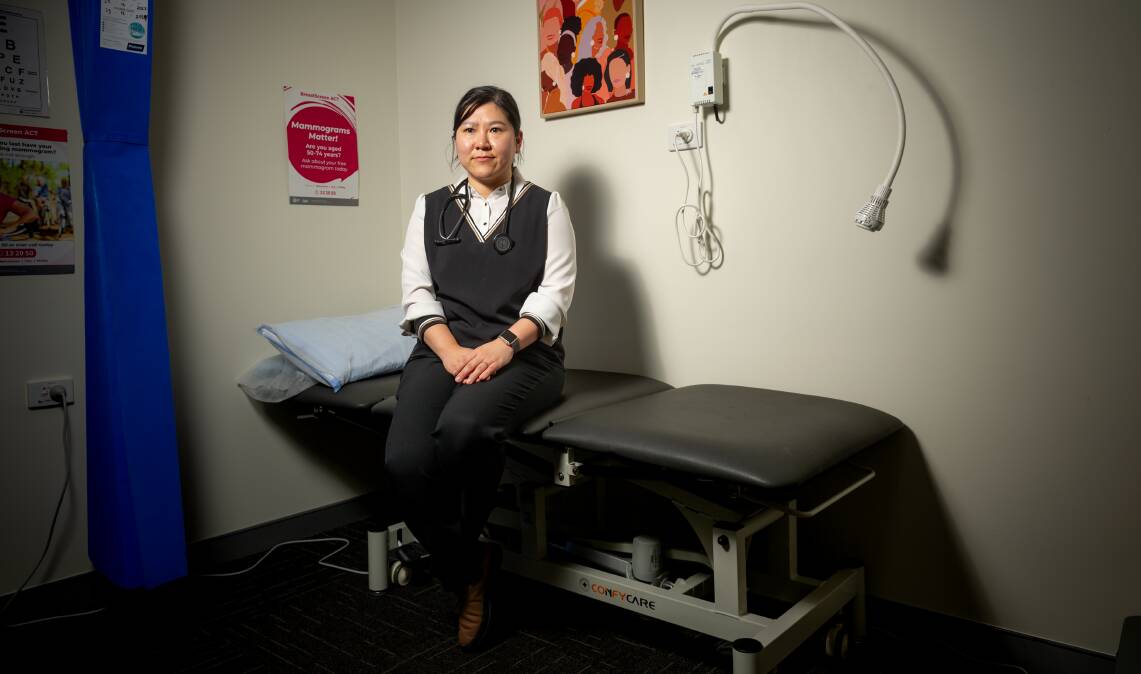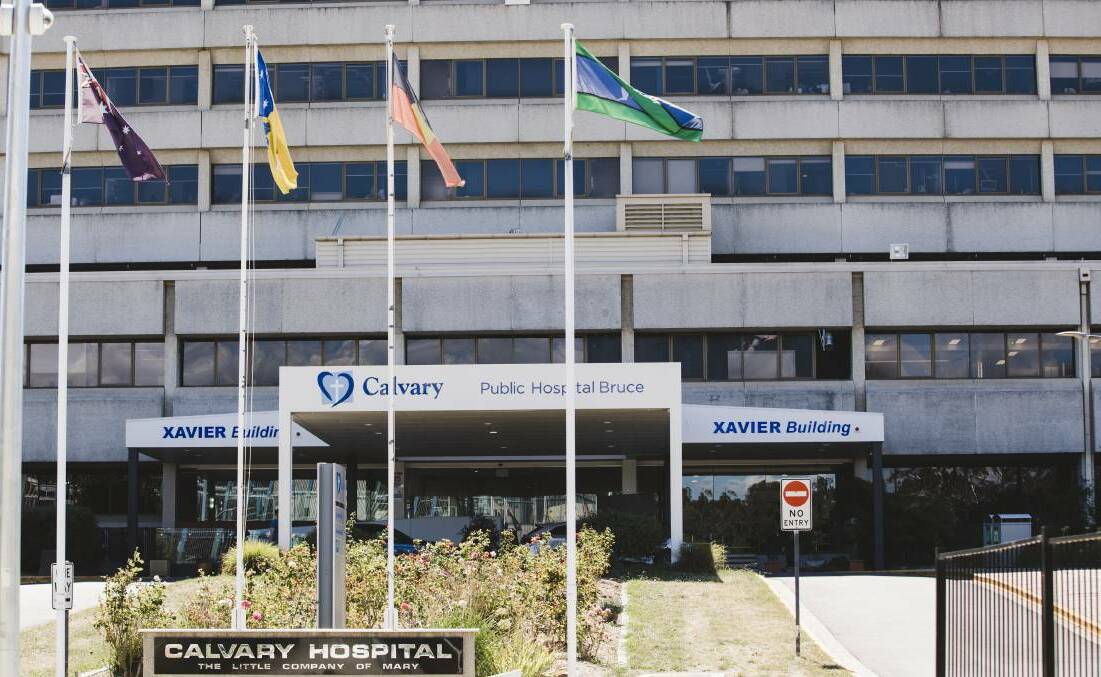Calvary has sued a junior doctor seeking compensation for alleged unpaid wages, in a move a former employee says demonstrates its "toxic and bullying culture".
Junior doctors launched a class action lawsuit against Canberra Hospital and Calvary Public Hospital Bruce last December.
Hayden Stephens and Associates and Gordon Legal represent doctors who claim they were systemically underpaid for unrostered overtime.

Calvary Health Care ACT is seeking money from the lead applicant, Dr Ying Tham, for failing to keep records of her overtime.
Calvary Health Care ACT has countersued Ms Tham, accusing her of costing them money for not keeping accurate records of her overtime.
They say Ms Tham must pay damages and penalties for the extra hours she worked, her lawyer Hayden Stephens said.
Sixteen health authorities across the ACT, NSW and Victoria are facing class action suits.
In response to detailed questions from The Canberra Times, a spokeswoman from Calvary declined to comment as the matter was before the courts.
'Intended to intimidate'
Calvary's legal action was an example of the "toxic and bullying culture" doctors are trying to fight against, ex-employee Dr Betty Ge said.
"My initial response is quite shocked, actually, and utter disbelief [that] this is how they're going to treat their ex-employees," she said.
"This to some extent speaks to the very culture we are trying to stand up to, essentially this toxic and bullying culture.
"If you are going to speak up against the management, against the authority, they're going to come back to you and they're going to go after you and then threaten you with legal action."
Calvary was the only hospital to countersue, Mr Stephens said.
"I have not seen anything like this in my 20 years as a lawyer," he said.
"This cross-claim is a marked point of difference with the ACT government, which runs Canberra Hospital, who have chosen not to take this course, nor has any other health service.
"[I believe] it is a legal manoeuvre that's intended to intimidate other doctors against bringing similar claims."
'Hypocrisy at its highest'

Calvary is fighting another legal battle, trying to stop the ACT government from compulsorily acquiring Calvary Public Hospital Bruce.
The organisation has expressed concerns about how the acquisition will impact staff.
Those statements were "hypocrisy" in light of the cross-claim, Mr Stephens said.
"I think it's hypocrisy at its highest when Calvary make public statements expressing concern about welfare and interests of their front-line workers and, at the same time, be instructing their lawyers to devise technical defences and cross-claims," he said.
Mr Stephens was lawyer for survivors of child abuse in the first group action against the Catholic Church in the late 1990s.
He compared Calvary's cross-claim to what he said were legal tactics used by the church against those alleged child sex abuse victims.
"This is straight from the playbook of how the Catholic Church and how their lawyers handle people who wish to prosecute their legitimate rights," he said.
Dr Ge said Calvary's claim an acquisition would destroy their good working culture was "hypocritical and ridiculous".
"[This claim] does not depict Calvary Hospital as a supportive employer," she said.
"They don't really have a good culture [so] I don't think they have a safe culture to preserve."
Powerful enemies
Submitting a claim for unrostered overtime as a staff member at Calvary Hospital was a difficult process, Dr Ge said.
Management were able to see what time staff clocked out, but doctors would still have to submit a separate time sheet for extra hours to be approved by a supervisor, she said.
"Our training opportunities, employment opportunities, all sits in with our supervisor," Dr Ge said.
"A lot of people would work those hours but not [claim in exchange for a good reference], for future employment opportunities and training opportunities."

Having worked at both Canberra Hospital and Calvary Public, Dr Ge said attitudes towards overwork varied between departments, not hospitals.
"At both hospitals, there is a long-standing culture of overworking doctors and then not paying them correctly," she said.
Canberra Health Services has previously said: "Junior Doctors at CHS are paid for worked overtime" as per the enterprise agreement.
How the suit works
Dr Tham represents up to 2500 ACT doctors who claim to have worked unpaid unrostered overtime, Mr Stephens said.
She worked across different departments at both Canberra Hospital and Calvary Public.
Anyone who worked as a junior doctor at those hospitals over the last six years is automatically included in the class action suit, unless they actively opt out.
"Some doctors might feel anxious about registering their interest, but I urge them to do so and to stay informed," Mr Stephens said.
Unlike many senior doctors, such as specialists or consultants, ACT junior doctors are covered by an enterprise agreement.
Overtime of 30 hours a week
Junior doctors in the ACT routinely work unpaid unrostered overtime, Mr Stephens said.
"For those doctors who have worked particularly in surgical departments [in the ACT] those hours can be extraordinary, sometimes 20 to 30 additional hours per week," he said.
"Calvary have, for years, accepted this free labour of junior doctors to the point now where it is part and parcel of everyday hospital life.
"These class actions are about saying to those health authorities, Calvary included, that this behaviour must stop."
Doctors involved in the suit were primarily concerned about patient safety and not interested in a "money grab", Mr Stephens said.
They also want to preserve the medical workforce and stop doctors from dropping out of the system, Dr Ge said.
A spokesperson for Calvary has previously told The Canberra Times: "Patient safety, together with care for our valued staff, continues to be our No.1 priority. We are committed to supporting our junior medical officers and all of our medical and health workforce."







